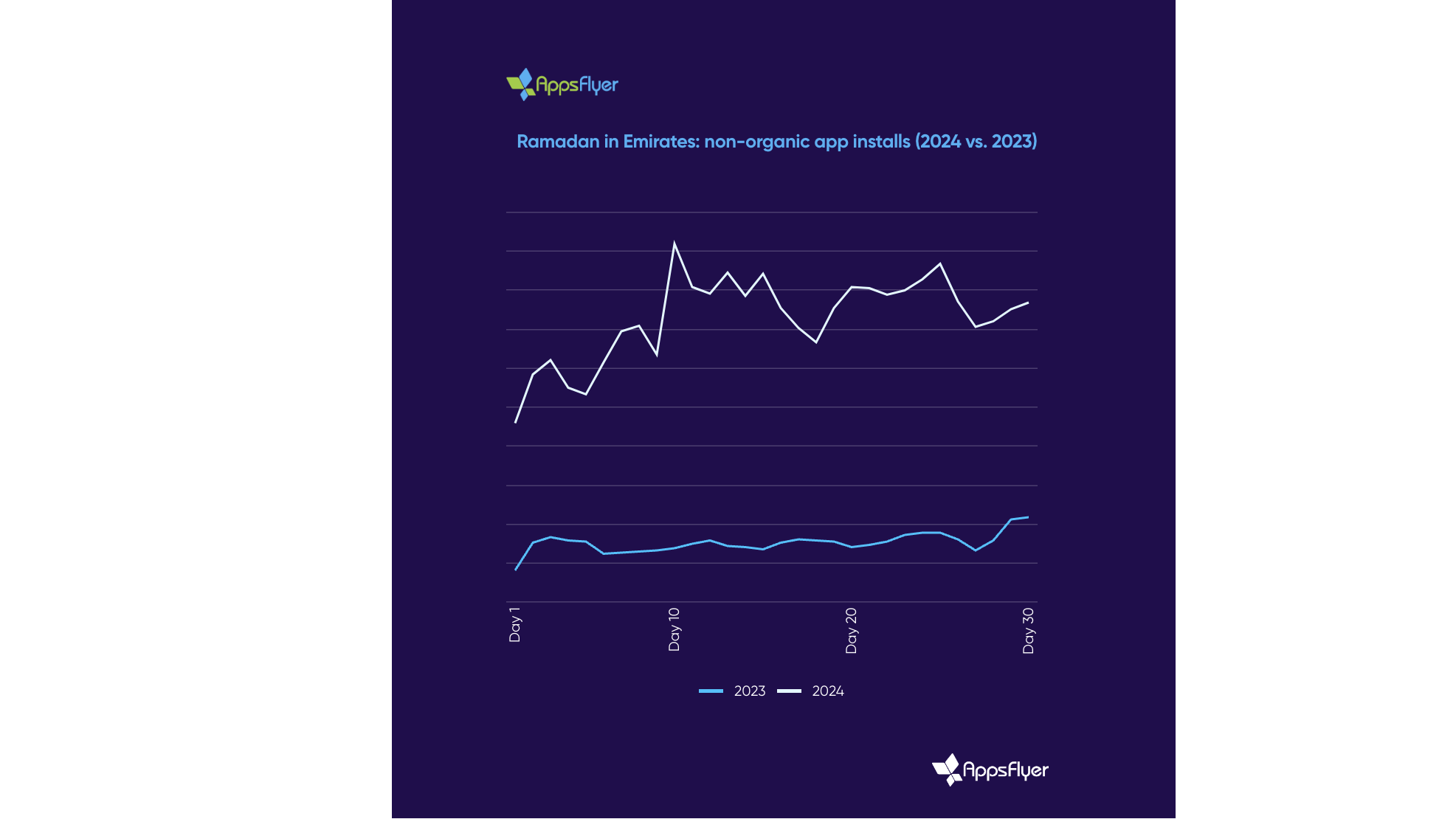
As regional brands compete fiercely to earn a coveted spot on users’ smartphones, new research from AppsFlyer has revealed that the country’s mobile marketers would be wise to concentrate their efforts in and around the Holy Month.In analysing key mobile app trends through Ramadan, and comparing these to the weeks leading up to the Holy Month, AppsFlyer’s research showed that in the Middle East, non-organic instals (NOIs) — those driven by marketing campaigns — of mobile apps were up by 27% this year, which is even more pronounced than the 21% spike observed during Ramadan 2023.“We have been analysing mobile app behaviours through the Holy Month for several years now and the ‘Ramadan Effect’ is abundantly apparent. During this time, consumers have limited time to reach physical shopping destinations before iftar and mobile shopping sees a surge as a result. Marketers can leverage this behaviour by creating targeted campaigns that offer deals on essential Ramadan items and increase engagement by creating content that highlights the significance of Ramadan and how their products can enhance the experience. By creating targeted e-commerce campaigns, brands can drive sales and revenue during this period,” said Sue Azari, Industry Lead - eCommerce, AppsFlyer.UAE Leads Surge in App Installs while Finance Apps Skyrocket by 384% During Ramadan in the Middle EastIn its YoY comparison, AppsFlyer found that the UAE in particular drove this positive trend, with NOIs in the country surging an incredible 164% this Ramadan. As in previous years, AppsFlyer’s researchers analysed trends in specific app categories including finance, food delivery, and eCommerce (shopping). This year, the performance of finance apps was especially impressive with the category showing a 384% spike in total instals compared to Ramadan last year. “In the Middle East, through the Holy Month this year, we saw a significant surge in financial app adoption, signalling a shift towards sophisticated investment trends. As competition intensifies, companies must innovate to stay ahead in the app industry,” said Otávio Tranchesi, Industry Lead - Finance, at AppsFlyer.Remarketing conversions — app spending driven by campaigns that aim to re-engage users that have already downloaded an organisation’s app — was also well pronounced for financial apps for which this metric grew a staggering 39%. Similarly, food delivery apps resonated well with UAE consumers, recording a 169% spike this Ramadan in NOI, while the eCommerce category also showed respectable 27% increases.Capitalizing on Ramadan Effect by Embracing Customer Retention StrategiesAzari was quick to emphasise the need for UAE brands that have benefitted from the Ramadan Effect to now work diligently to consolidate their gains. Just this year, AppsFlyer showed that UAE consumers are easily disenchanted by the mobile applications offered by brands, with the majority (56.44%) of Android apps being uninstalled within just a month of being downloaded.“Companies must solidify their gains by retaining the hard-won customers through continuous engagement efforts. This will mean delivering outstanding customer experiences to reinforce the current user base and extending marketing and engagement strategies across email, SMS, and push notifications. Personalising experiences will also be key to enhancing engagement, fostering loyalty, and generating increased value for customers,” said Azari.

